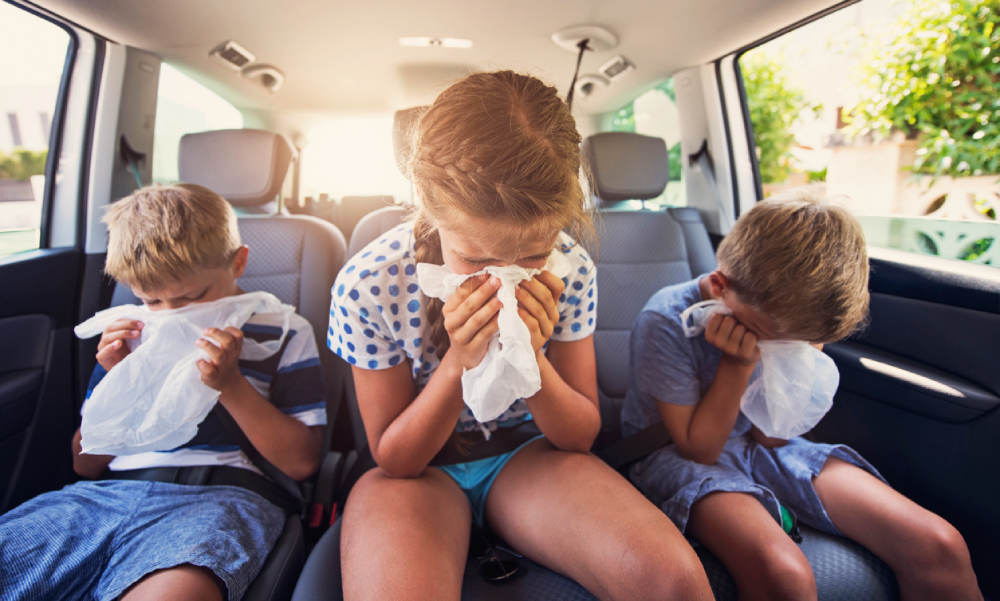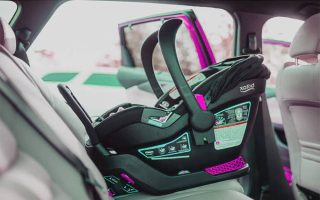Car travel can be an exciting adventure for most families, but sometimes children may experience motion sickness, leading to discomfort and nausea. If your child feels sick during car journeys, it’s important to be prepared and know how to alleviate their discomfort.
In this article, we will explore effective strategies to help your child overcome car sickness and make the travel experience more enjoyable for everyone involved.
Plan ahead – if you are well prepared, your journey will be easier
There are a few very important things you need to do beforehand:
- Choose the right seating arrangement: Position your child in the middle seat of the car, which provides a more stable ride and reduces motion sickness;
- Avoid heavy meals before travel: Encourage your child to eat light, non-greasy snacks before the trip, and avoid large meals that can contribute to nausea;
- Pack essential items: Carry a plastic bag, wet wipes, tissues, and a spare set of clothes in case of any accidents.
Provide fresh air – this is a good way to reduce the risk of nausea
Fresh air always has a beneficial effect and reduces the child’s discomfort. In this regard you can take two important steps:
- Keep the car well-ventilated: Open a window slightly to allow fresh air circulation, which can help alleviate nausea;
- Utilize air conditioning: Adjust the temperature to a comfortable level, ensuring that the car doesn’t become too hot or stuffy. Usually, the nausea increases with higher temperatures.
Distractions and entertainment – the first step in solving the problem is to carefully divert attention from the feeling of discomfort
If you distract the child, the problem will be much smaller and easier to control. There are two very easy ways to do this:
- Encourage engaging activities: Provide your child with books, coloring books, or handheld games to divert their attention from feeling nauseous;
- Play soothing music or audio books: Calming music or an interesting story can help take their mind off the discomfort.
Take frequent breaks during the trip
When traveling with young children, especially with a child who has a problem with motion sickness, it is very important to take more frequent breaks. The first thing is to plan regular breaks during long journeys. After all, you also need to stretch your legs and to take a breath of fresh air.
Offer light snacks and water but only small, non-spicy snacks. Also, a few sips of water can help settle their stomach. Staying hydrated is important during travel, as dehydration can worsen symptoms of motion sickness.
When it comes to managing motion sickness, there are certain foods that may help alleviate symptoms or prevent their onset.
Here are some foods that are known to be beneficial for individuals with motion sickness:
- Crackers or plain biscuits: Consuming plain, dry crackers or biscuits before and during travel can help settle the stomach and absorb excess stomach acid, reducing the feeling of nausea;
- Bananas: Bananas are easy to digest and can provide a good source of energy. They also contain potassium, which can help replenish electrolytes lost due to motion sickness;
- Peppermint: Peppermint has a soothing effect on the stomach and can help relieve nausea. It can be consumed as peppermint tea or in the form of peppermint candies or lozenges.
Adjust seating position – this can be very helpful
Motion sickness is typically caused by a conflict between the signals received by your senses. When your eyes, inner ears (vestibular system), and other sensory receptors send conflicting messages to your brain about your body’s motion.
With that in mind, the following may help:
- Keep eyes on the horizon: Encourage your child to look at distant objects or focus on the horizon to reduce the sensory conflict that triggers motion sickness;
- Avoid excessive head movements: Discourage activities that involve excessive head movements or looking down for prolonged periods, such as reading in the car.
Try natural remedies
Ginger-based products are one of the most recommended natural remedies because ginger has natural anti-nausea properties. Consider ginger candies, ginger ale, or ginger supplements (consult a paediatrician for the appropriate dosage) to help alleviate symptoms.
Acupressure wristbands can help as well. These wristbands apply gentle pressure to specific points on the wrist known to alleviate nausea and can be effective for some children.
Be patient and positive – you will find the right solution
While motion sickness during car travel can be unpleasant for children, following these tips and strategies can significantly reduce discomfort and help make the journey more enjoyable.
Remember, every child is different, so it may take some trial and error to find the most effective solution for your child.
By planning ahead and implementing these strategies, you can help your child overcome car sickness and create lasting memories of enjoyable family travels.

My name is Rebecca McCarthy and I am an American girl with British heritage residing in the beautiful city of Nashville, Tennessee. I have always had a keen interest in cars, particularly brand new ones that showcase the latest technology and design features. I am also passionate about travelling and experiencing new cultures, as well as enjoying hot summer days with friends and family.



